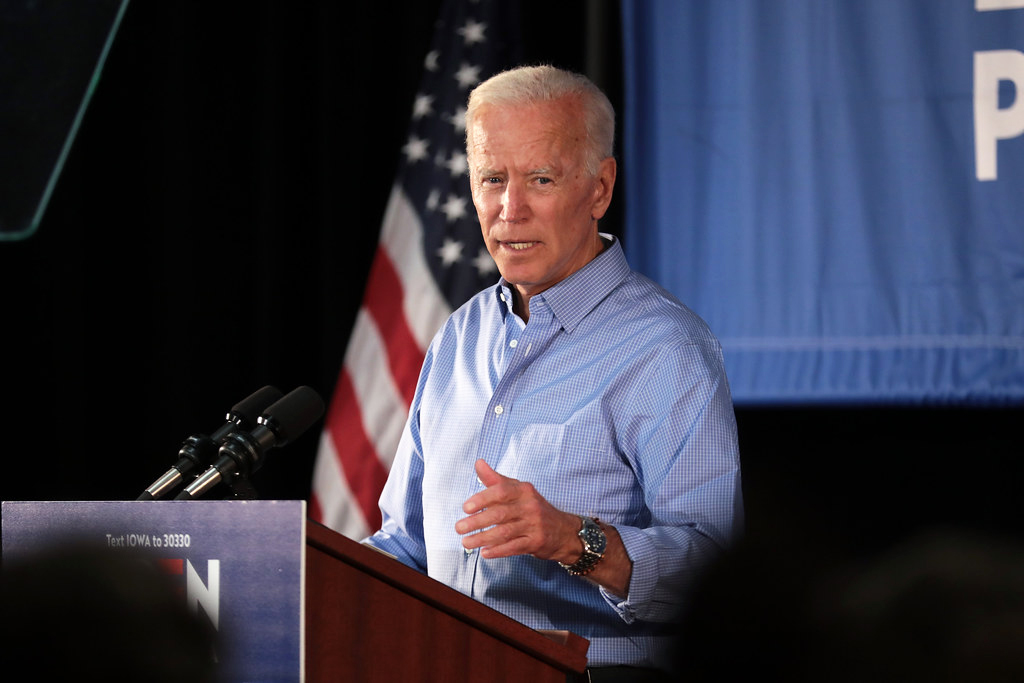
Wikimedia Commons
After four years of the Trump administration’s hostility towards private universities, the first months of Joe Biden’s presidency have left Yale administrators hopeful about the prospect of reform in the treatment of higher education institutions.
Biden took the Oath of Office in January, setting a new tone for the federal government’s relation to higher education institutions, Vice President of Global Strategy Pericles Lewis said. Biden took executive action to repeal travel bans, allow for increased student visas and reestablish a presidential council of science advisers. But there are still questions as to how much his policies will fundamentally differ from the Trump administration’s — particularly concerning research collaborations with China, cancelling student loan debt and overturning Title IX policies that safeguard the accused.
“I haven’t noticed any hostility towards universities in the administration, which is nice,” Lewis said. “There has been a little bit of a tendency in the last few years, especially in the last administration, to bash the universities.”
During Trump’s tenure, he was outspoken about the danger that the Chinese Communist Party posed to U.S. innovation. The Trump administration warned that China could steal sensitive information through research collaborations with American universities.
The Trump administration took a number of actions to prevent this collaboration, some of which were widely criticized by University officials.
“The university is very interested in how the Biden Administration will view international academic collaborations, especially relationships with researchers in China, given concerns among Democrats as well as Republicans about global competition in technologies that are relevant to industry and national security,” Associate Vice President for Federal and State Relations Richard Jacob wrote in an email to the News.
Under the Biden presidency, Yale expects the government will augment federal funding for university research due to the potential impact of research on the commercial sector, Lewis said. On Jan. 27, Biden took executive action to reestablish the President’s Council of Advisors on Science and Technology. But there are still questions as to whether Yale scientists will now be able to freely collaborate with their counterparts in China.
Though the substance of the visa policies has not significantly changed since Biden took office, Lewis said the new administration has a “different tone” around the topic than Trump’s did. Lewis is hopeful that “sensible policies” around students entering the country and cross-national research collaborations will win out.
This fall, the University lobbied against federal policies that would hinder student travel to the U.S. Since Biden took office, he has used executive authority to restore Deferred Action for Childhood Arrivals, also known as DACA, lifted the travel ban on majority Muslim countries and revoked the temporary suspension of visas that many Yale students had utilized.
As the public health situation improves, Jacob said the University will monitor how the federal government addresses COVID-related travel restrictions. State Department statistics show that the number of F-student visas issued, used primarily by students, dropped worldwide by 60 percent in 2020, and fell by 86 percent for Chinese students, Jacob wrote in an email to the News.
Additionally, Biden campaigned on a promise to forgive student loan debt. Biden has been outspoken about his path to the presidency that did not involve an Ivy-League education. At a recent CNN town hall, he said that he would not universally extend student loan forgiveness to $50,000, saying government funds could support early education for students from disadvantaged backgrounds rather than students who attended “Harvard and Yale and Penn.”
In an email to the News, a Department of Education spokesperson wrote that Biden’s economic agenda centered on easing the economic burden for working people. Biden asked the Department to extend the pause on federal student loan payments and interest until September, support congressional efforts to cancel $10,000 of student loan debts per person and to review possible executive action on the issue.
Furthermore, Jacob said that Yale is advocating to double the maximum Pell Grant to around $13,000, which would make college more affordable and reduce the number of people taking out student loans. Yale has centered its advocacy on Pell Grants rather than on student debt forgiveness, Jacob added.
Another place in which the Biden administration’s policies could impact Yale is through Title IX regulations. According to Richard Lemons, Executive Director of the Connecticut Center for School Change and an instructor at Yale in Education Studies, “all indicators suggest” that the new leadership of the DOE under Miguel Cardona will try to reverse the regulations on Title IX put into place by former Secretary of Education Betsy DeVos.
Among many things, the regulations have strengthened protections for those accused of sexual misconduct. Lemons explained that during the 2020 election, the Biden team took aim at the DeVos regulations as a direct attack on women and their safety. According to Lemons, DeVos’s regulations were seen as “a direct reversal of the work of the Obama administration” with regards to increasing safety on University campuses, something that Biden had worked on during his vice-presidency.
However, Lemons explained that even if Biden wanted to, “reversing the changes put into place by DeVos may prove complicated.”
“Higher education institutions will have to rework protocols and policies that they already reworked to align with DeVos’s regulatory guidance,” Lemons wrote to the News. “It took time for campuses to adjust policies, and new Title IX guidance may prove more complex than just going back to four years ago.”
University Title IX Coordinator Stephanie Spangler declined to speculate on what the new administration will do to Title IX regulations at this point.
April 30, 2021 will mark the end of Biden’s first 100 days in office.
Julia Bialek | julia.bialek@yale.edu
Rose Horowitch | rose.horowitch@yale.edu







